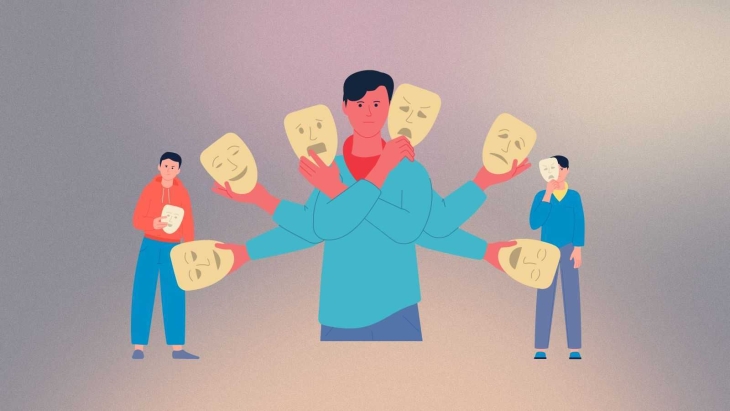Recent Posts
- Am I too sensitive to noise? It drives me crazy! The psychological effects of noise on mental health
- What are the signs that I am avoiding grief? How avoiding processing loss impacts mental health
- My son's disruptive behavior is affecting his life. How can I help him improve?
- I want to be ready for motherhood: Exploring pre- and postnatal mental health issues
- Effects of positivity on job search motivation. How do I stay confident when my job search gets tough?
Most Popular
Men masking mental health issues. Why is men's mental health declining in the US?

“It is not the situation which makes the man, but the man who makes the situation,” said Frederick William Robertson in the 1800s.
Leaps and bounds on mental health and wellness have been made since that time, but current statistics still show us that a lot more can be done to improve attitudes towards mental wellbeing.
Mental Health America surveys say that although men generally experience fewer mental health issues than women, men are more likely to hide their mental health struggles and therefore also delay getting treatment.
Mental health statistics in men
- Among patients with eating disorders like anorexia nervosa, only 10% are men. However, men who have the condition are unlikely to seek help from a professional.
- There is an underdiagnosis of depression among men in the US, but statistics estimate that there may be more than 6 million men suffering from it every year.
- Panic disorders are experienced by around 3 million American men.
- Schizophrenia, often a chronic and debilitating mental illness, (3) is one of the most common causes of disability among young men in the US. In fact, although schizophrenia affects fewer than 1% of people in the US, 90% of them are men.
- About 2 million in the US are diagnosed with bipolar disorder, and half of them are men.
Men’s reluctance to speak up about their mental health
Worldwide, men seem to be reluctant to open up about their mental health struggles, citing being “too embarrassed” or “afraid of the stigma” as common reasons.
Others say that these reasons why they keep their mental health issues to themselves:
- They have learned to live with their mental health struggles.
- They do not want to feel like a burden to others.
- They find it hard to accept help.
- They do not want to appear less masculine and weak.
- They feel like they have no one to share with.
However, these reasons also get in the way of men getting the appropriate treatment at the opportune time. In fact, the World Health Organization estimates that mental health illnesses leading to suicide happens twice as likely among males that females.
In the US, 80% of all suicide-related deaths are among men.
The risk factors that put men at risk for seeking mental health help include:
- Expectations in one’s gender roles;
- Gender norms in men have been deeply entrenched and society continues to discourage men from seeking help;
- Believing in society’s stigma on mental illnesses;
- Experiencing financial difficulties.
- Being a man of color or coming from an ethnic background.
- Difficulty in trusting medical professionals, especially mental health practitioners.
However, the tables can still be turned. It has been shown that by seeking emotional and mental health support, men can improve their access to mental health services.
If you are a man who is struggling mentally, here are a few questions you can ask yourself:
- What causes intense pressure in my life right now?
- What part of my life experiences the greatest impact because of a mental health struggle?
- Who can I talk to about my mental health struggles?
- What seems to be stopping me from speaking up about my mental health?
- What are the advantages of talking to a mental health professional?
Once you have considered these questions, who would you share your thoughts with? It can be a trusted loved one, close friends, family or even a medical professional.
Are you interested in hiring top talent in the medical field but lack the time or resources to do so? Reach out to Gotham Enterprises LTD to assist you in your recruitment needs.








Comments